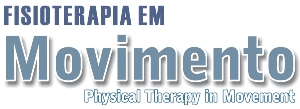INTRODUCTION: In individuals with amputation, the knees suffer an imbalance in weight bearing between lower limbs that can lead to development of osteoarthritis (OA). OBJECTIVE: To quantify the weight bearing in lower limb prosthetic individuals and correlate this bearing with time of prosthesis use, age and prevalence of osteoarthritis diagnosis. MATERIALS AND METHODS: This study included 12 patients with unilateral transfemoral or transtibial amputation, were patients between 19 and 64 years of age. They were evaluated by a computerized baropodômetro, IST Informatique® brand, model Foot Work to quantify the weight bearing on the lower limbs, by a radiographic examination of the intact knee in the anteroposterior incidence, to verify a possible joint degeneration. Patients were also examined by a rheumatologist for possible association of degeneration with clinical signs. RESULTS: The average of weight bearing of intact limb was 58.08% (± 5.88) and amputed limb was 41% (± 5.88), with a significant statistical difference. Twenty-five percent of the 12 individuals had radiological diagnosis of mild joint degeneration in the non-amputed knee and none of them had diagnosis of OA. There was no significant association between age, time of prosthesis use and weight bearing. However individuals with older age and shorter time of prosthesis use showed greater imbalance in the weight bearing. CONCLUSION: Lower limbs amputees have an excessive loading on the intact limb, so that the older the individual who is prosthetic and the shorter the period of prosthesis use, higher will be the excessive loading. Individuals who were prosthetic after the thirties have more tendencies to joint degeneration in the intact knee.
Bearing; Weight; Osteoarthritis; Knee; Amputees



